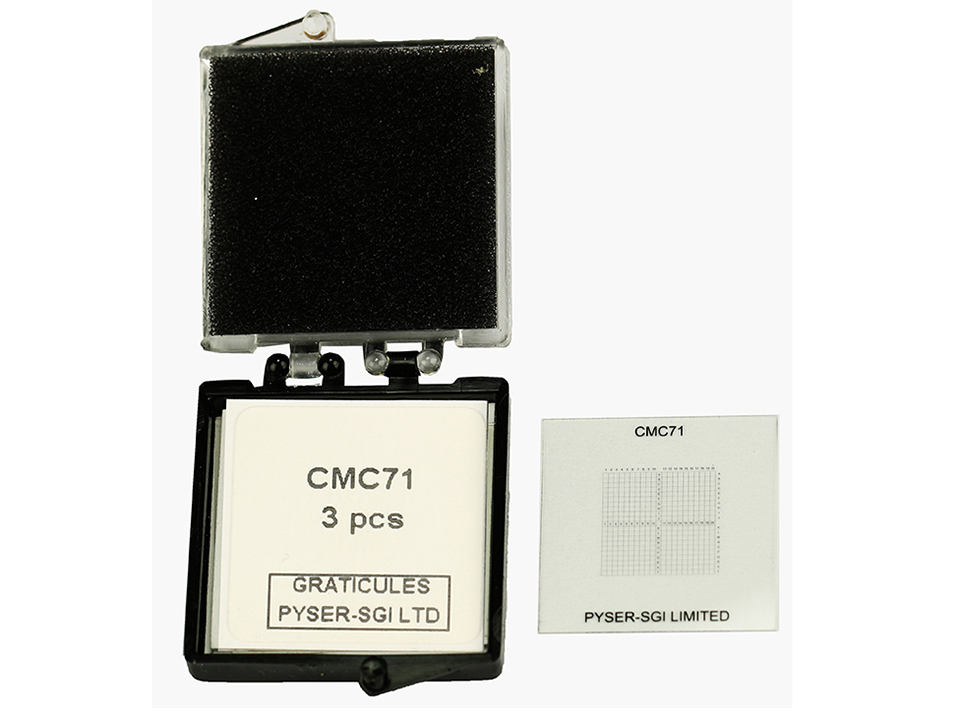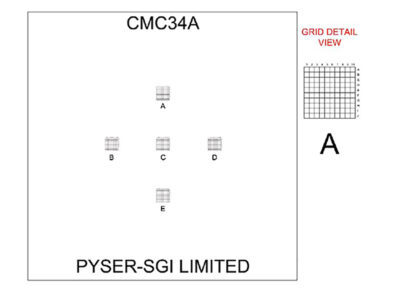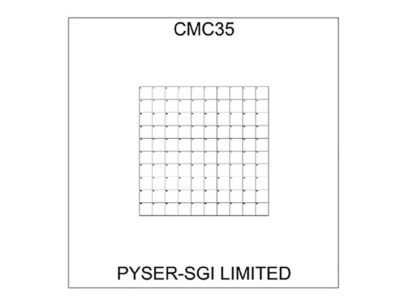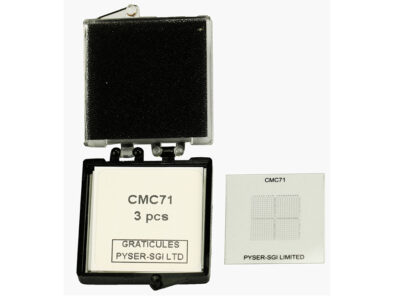Correlative microscopy coverslips
CMC correlative Microscopy Coverslips are made using a polyester-based film with unique reticule patterns. They are specifically designed to allow identification and location of areas of particular interest with bright field or fluorescence microscopes and then processing for electron microscopy. CMC correlative microscopy coverslips are not designed to replace the optically superior quartz or glass coverslips as the film itself has a structure which can be visible in certain illumination conditions.
The material of CMC correlative microscopy coverslips is compatible with cell culture growth and exhibit good adhesion for cell cultures. The key advantage is that the film is easily cut and punched to allow EM processing.

Features and benefits of CMC correlative microscopy coverslips:
- Good optical quality in bright field and fluorescence microscopy
- Excellent transparency
- Temperature range for use:196°C to +100°C
- Rigid – does not float in the middle of culture
- Resistant to normal chemicals used in electron microscopy
- No oxygen retention – compatible with LR White resin
- Simple sterilisation using alcohol or UV
- Easy to handle and easy to cut with a knife or punch
- Choice of three different field proven patterns
- Low cost
| Product | CMC 34A | CMC 35 | CMC 71 |
| Product # | 51-002834 | 51-002835 | 51-002871 |
| Pattern size | 5 ea 1 x 1mm 5 x 5mm area |
10 x 10mm 100mm2 |
10 x 10mm 100 mm2 |
| Divisions | 0.1 x 0.1mm | 1 x 1mm | 0.5 x 0.5mm |
| Coverslip size | 22 x 22mm | 22 x 22mm | 22 x 22mm |
| Thickness | 0.18mm | 0.18mm | 0.18mm |
| Material | Polyester | Polyester | Polyester |
- Sterilise the CMC correlative coverslip with alcohol, dry and add culture
- Ensure that the grid of the correlative coverslip is positioned correctly and that the text is readable
- Record images needed and note the co-ordinates of the region of interest
- Fix, dehydrate and embed with resin for TEM
- Place a BEEM capsule filled with resin onto the coverslip over the selected region of interest
- Cure resin, detach the correlative coverslip. The footprint of the grid in the resin shows the selected location, trim the block in the selected area and make cuts using an ultramicrotome
Ordering information:
-

CMC34A correlative coverslips 5 x 1 x 1mm with 0.1mm divisions
CMC34A correlative coverslips 5 x 1 x 1mm with 0.1mm divisions (pkg/25)
£85.00 Add to basket -

CMC35 correlative coverslips 10 x 10mm with 1mm divisions
CMC35 correlative coverslips 10 x 10mm with 1mm divisions (pkg/25)
£70.00 Add to basket -

CMC71 correlative coverslips 10 x 10mm with 0.5mm divisions
CMC71 correlative coverslips 10x10mm with 0.5mm divisions (pkg/25)
£70.00 Add to basket
